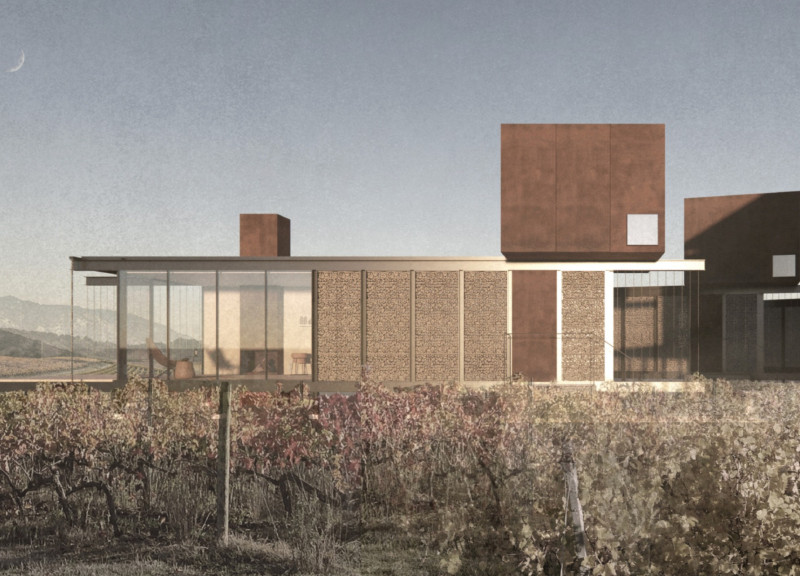5 key facts about this project
Tili Vino Guesthouse is situated near the foothills of Monte Subasio, designed to provide guests with an immersive experience in a tranquil vineyard setting. The building serves as an accommodation facility and a center for wine culture, blending contemporary design with the local landscape. It emphasizes the significance of nature and reflection in daily life, highlighting the connection between the built environment and its surroundings.
Spatial Organization
The design of the guesthouse carefully considers guest privacy while maximizing views of Monte Subasio. Each cabin is positioned with intention to create a unique visual experience, enhancing the sense of calm. This thoughtful spatial arrangement not only contributes to comfort but also encourages guests to connect with their surroundings, offering moments of contemplation in the vineyards.
Interplay of Light
Natural light plays a key role in the design, aided by the use of opaque cladding. As daylight filters through the structure, it creates a rich interplay of shadows and light within the interiors. This thoughtful approach enhances the experience for guests, allowing the spaces to change as the day progresses.
Materiality
Corten cladding is an important part of the design, reinforcing the connection to the local environment. Gabion panels, made from rubble and local aggregates, add texture and character to the guesthouse. This choice of materials not only ties the design to its historical context but also contributes to a sense of warmth within the cabins.
Functionality
Tili Vino Guesthouse is more than just a place to sleep. It serves as a center for wine-related activities, including a restaurant and tasting area. These elements allow guests to engage deeply with both the culinary and viticultural offerings of the estate, creating a rich environment for appreciation during their stay.
Outdoor patios offer dynamic viewpoints that connect the living spaces with the surrounding vineyards. This design invites guests to interact with nature, providing opportunities to appreciate the landscape and the vineyard experience.






















































